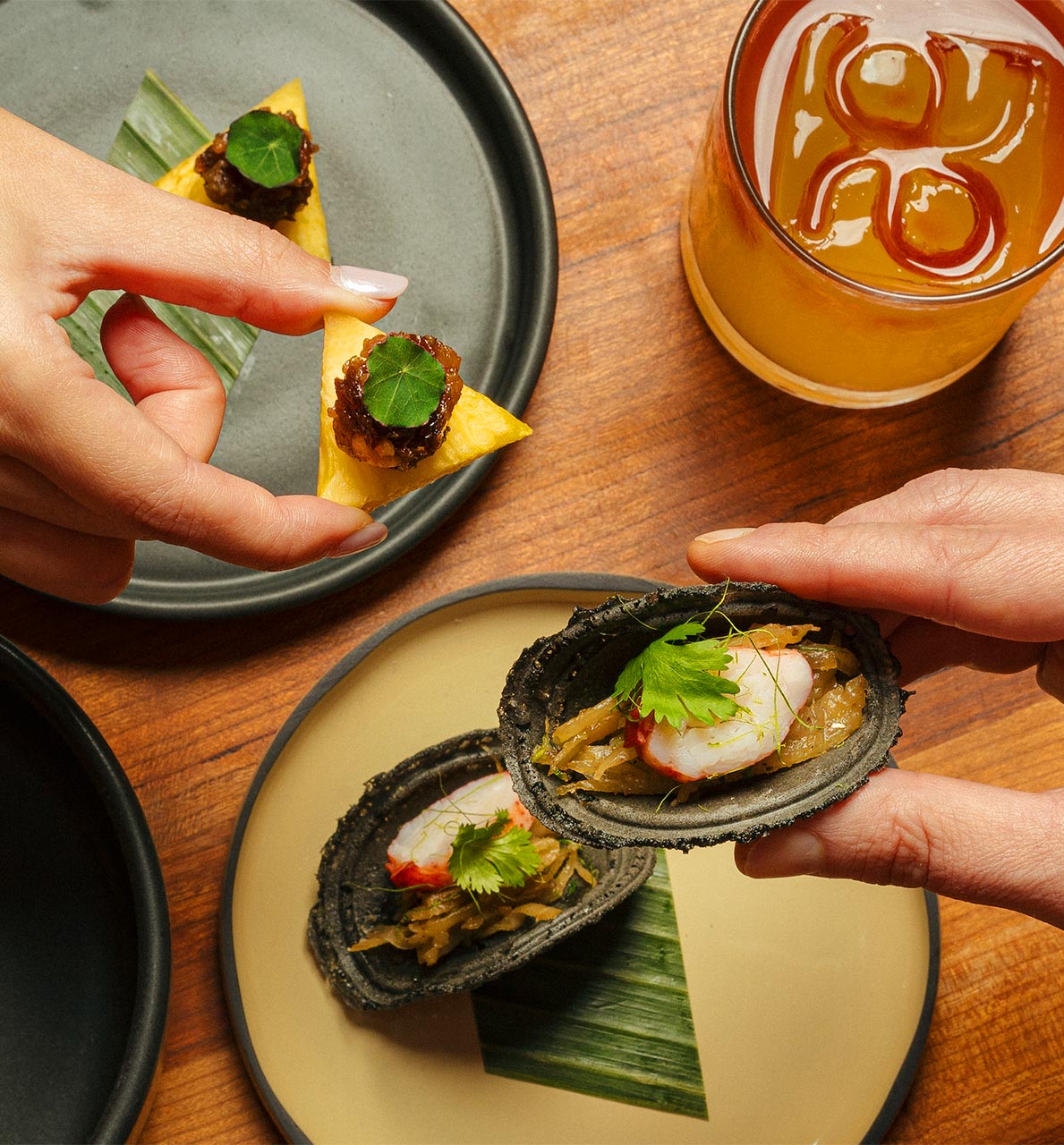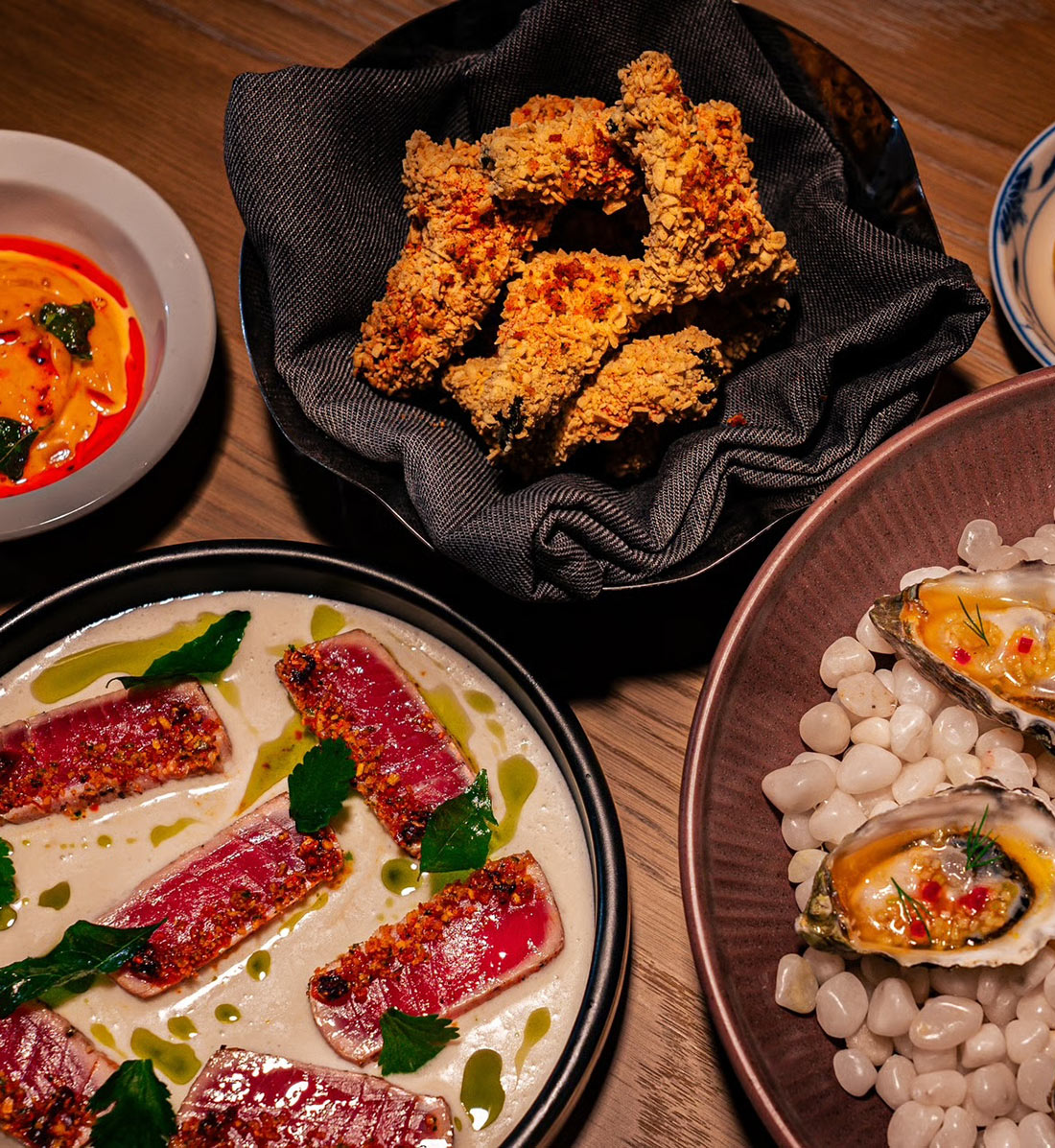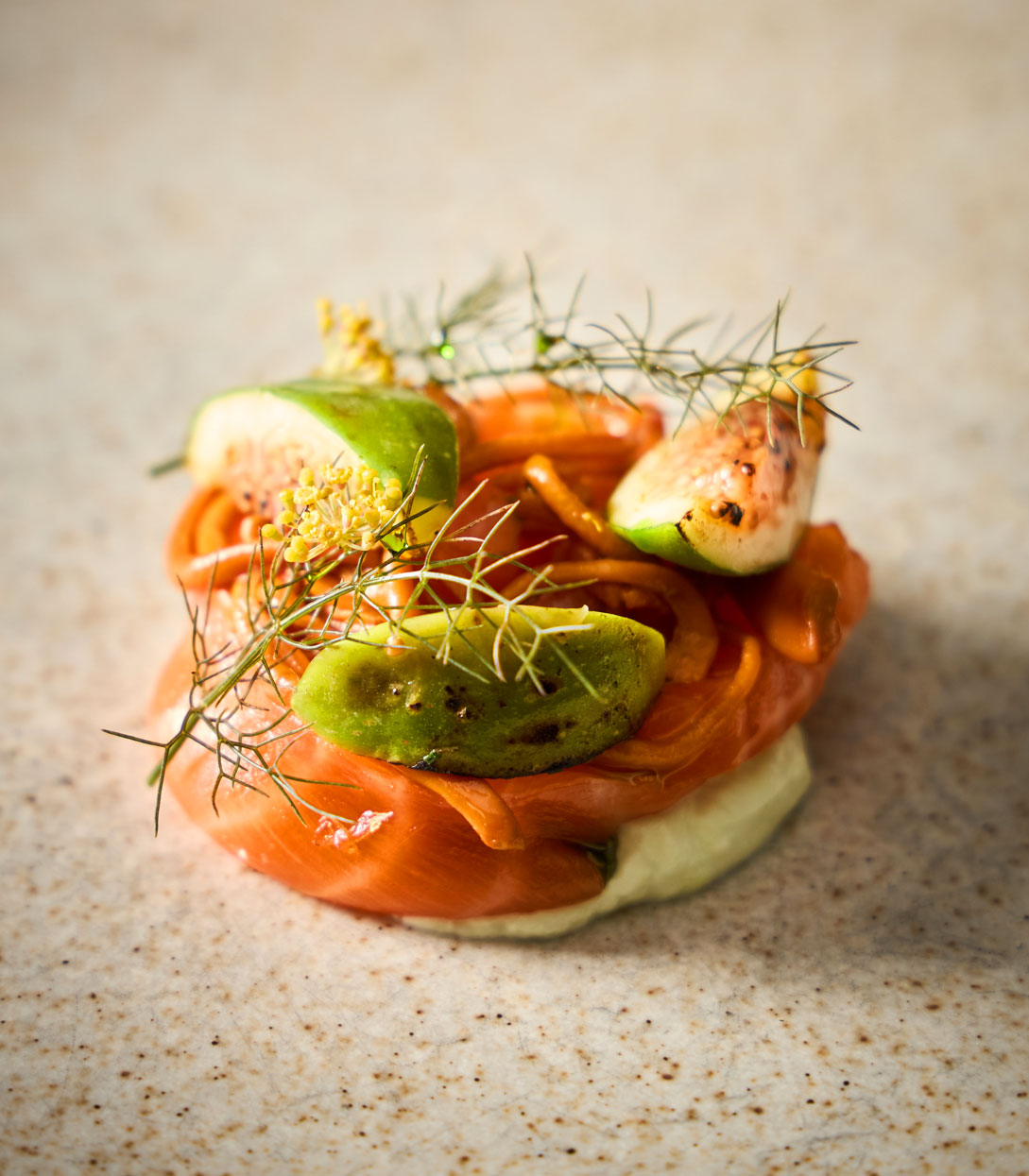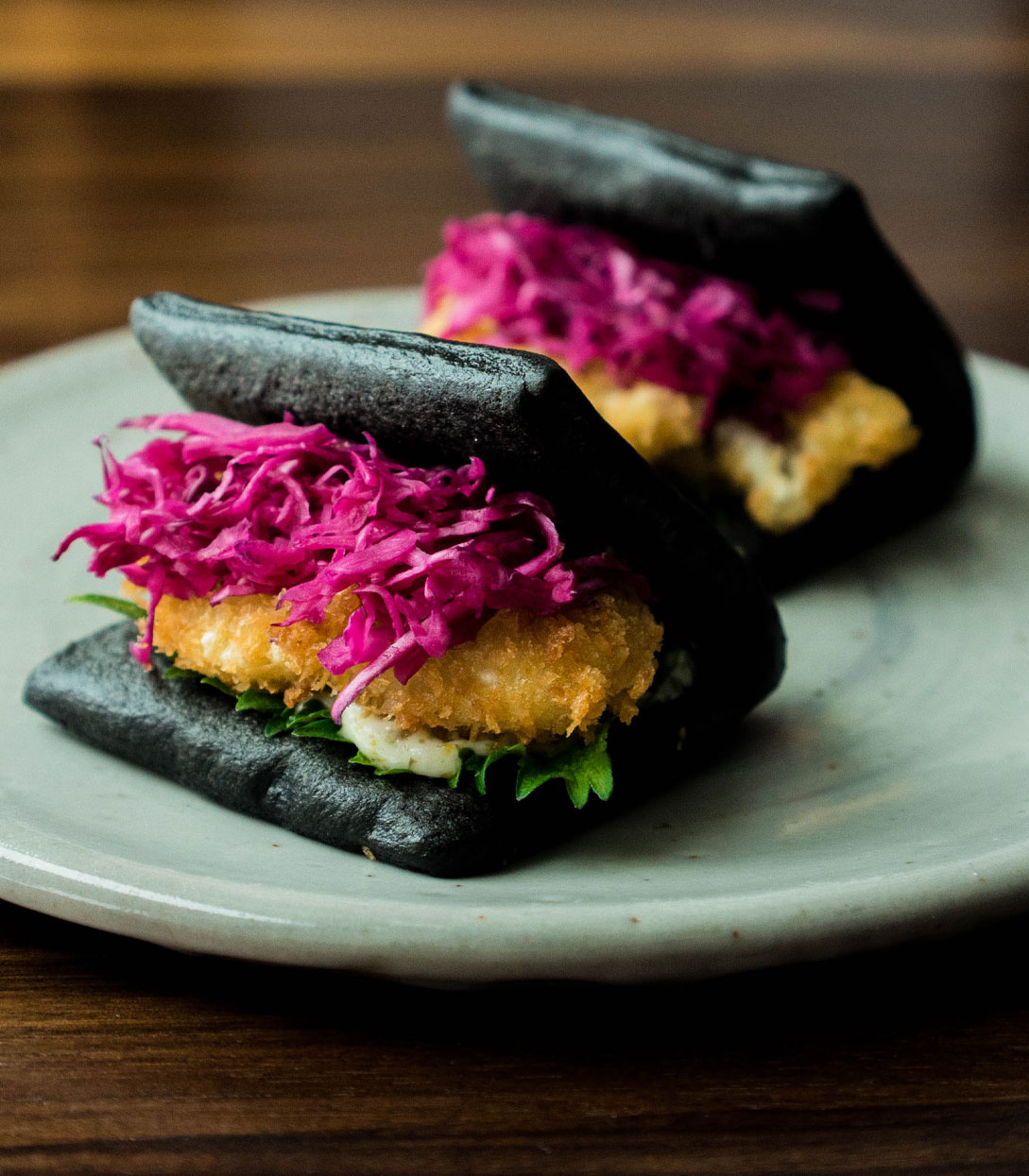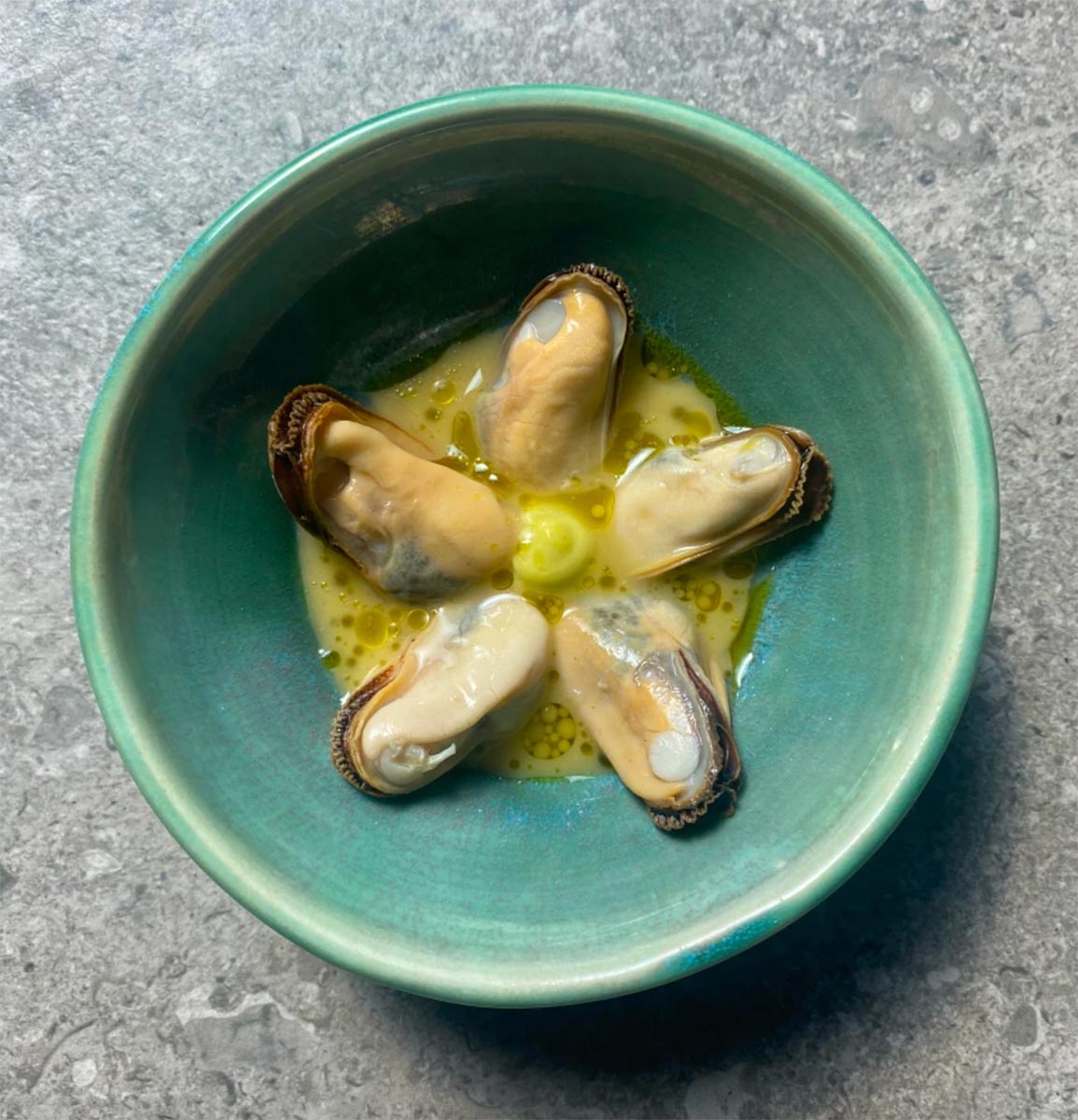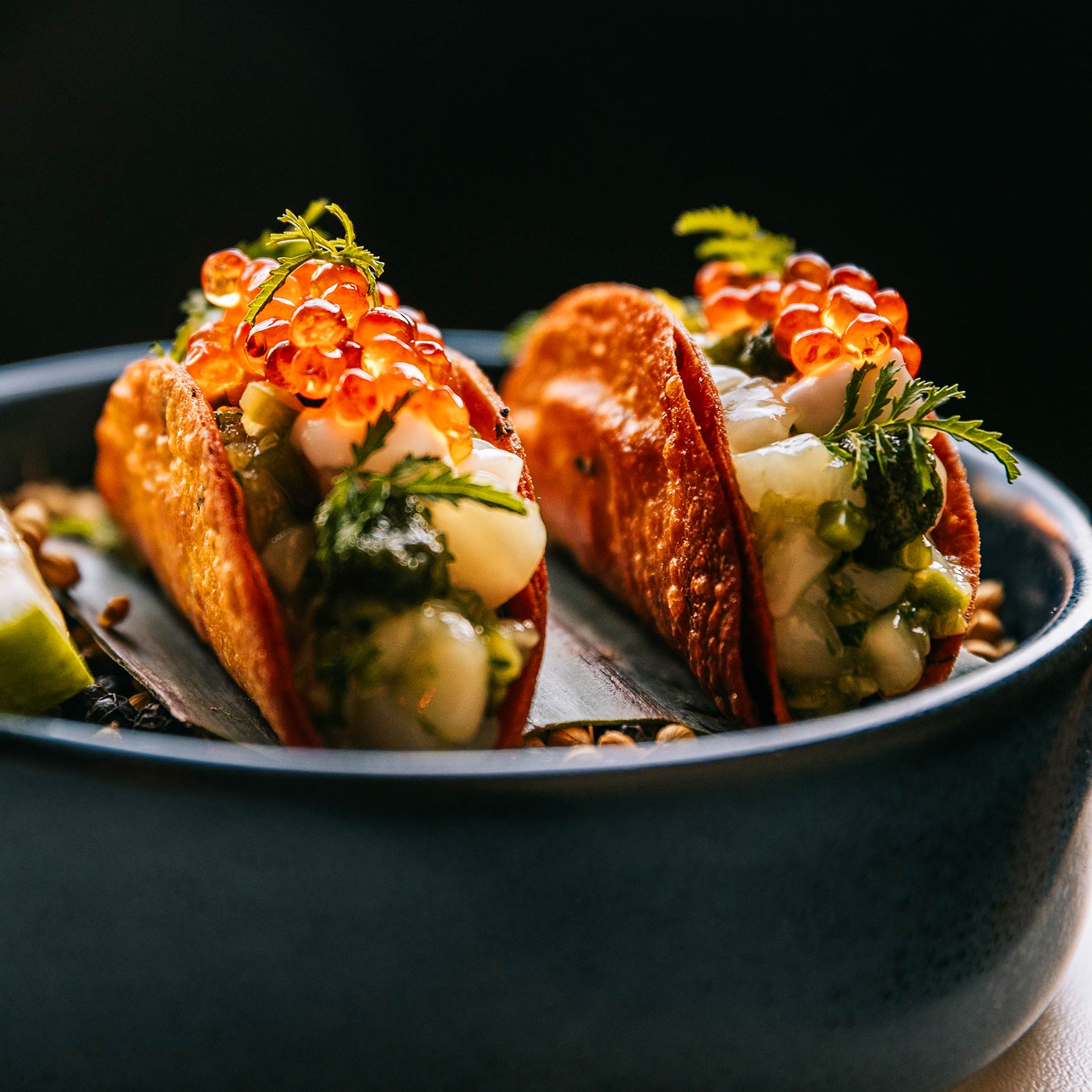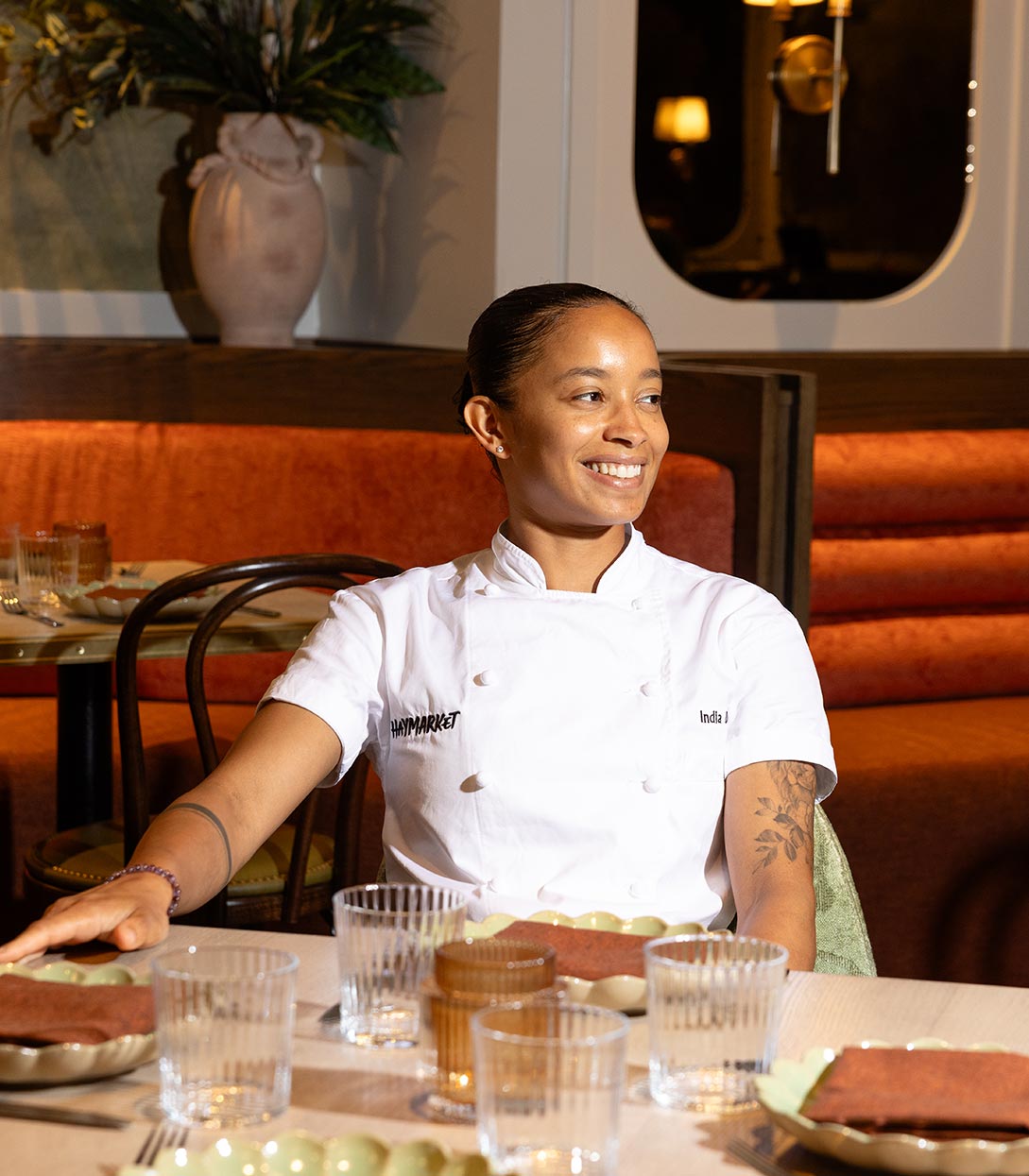Chef Charlie Trotter’s influence on American fine dining is profound. Today, countless restaurants draw inspiration from him, whether they know it or not. His iconic restaurant, Charlie Trotter’s, opened in 1987 and ran for 25 years, popularizing the tasting menu, vegetarian menu, fusion cuisine, sustainability, wine pairings, and non-alcoholic options.
Trotter mentored generations of chefs, including John Shields of Three MICHELIN Star Smyth, Markus Glocker of Koloman, Curtis Duffy of Two MICHELIN Star Ever, and Grant Achatz of Three MICHELIN Star Alinea and One MICHELIN Star Next. These chefs, in turn, have become mentors themselves, passing Trotter’s legacy to the next wave of culinary talent.
From September 8 to December 31, 2024, guests at Next in Chicago will have the rare privilege of experiencing a homage to Charlie Trotter, led by his son Dylan Trotter and Chef Grant Achatz.
Featuring quotes by Dylan Trotter and Grant Achatz, the following short stories give us a glimpse into Charlie Trotter's legacy:

THE VISIONARY
Grant Achatz and Dylan Trotter
Chef Trotter’s contributions to American fine dining have been monumental. Achatz begins, “Most people don't know that he basically invented the wine pairing. He popularized the tasting menu here in the USA. The vegetable menu. And all the non-alcoholic stuff was him, and nobody gave him credit.”
“He was passionate about sustainability and farm-to-table, and this was obviously way before it became a buzzword,” says Achatz. “A purveyor would walk in with four Heirloom tomatoes, and he would look at us and be like, ‘what are we doing with tomatoes today?’ This was at 2pm, and we had service in three hours.” Dylan adds, “The produce was coming in three times a day from artisanal farmers. The art of farm to table, making that solid relationship with the fishermen, the person raising livestock, the vegetable farmer. Going to the farms and visiting them, asking questions and being curious.”
That curiosity led Chef Trotter to experiment with all kinds of ingredients and cuisines. Achatz reminisces, “As a young culinarian in the early 90s, I was fascinated by this. Charlie was the only one not afraid of fusion, probing French and Japanese and Indian and Vietnamese out into high end dining. At that time, that was not popular. He did it in a way that was smart, but also had the backbone of flavor. How was he able to interject ingredients that most people didn't know? He was using grains and vegetables from South America. Nobody knew what quinoa was. He was very ahead of his time.”
Dylan adds, “Chicago really only had classic French restaurants and steakhouses when going out to a nicer dinner. My dad's was something new and fresh. The menu changed daily, so that the 10 courses you would have, by the end of the week, there were 10 totally new courses.”
Achatz concludes, “He let everyone know that Chicago was a serious place, and for that, we are all indebted to him.”

THE MENTOR
Grant Achatz
One dish is deeply ingrained into Chef Achatz’s memory. “I was on the vegetable station. They told me that was the hardest because you were off template. Very few people ordered the vegetable menu. When they did, you had to come up with a bunch of stuff on the fly. There was one course that was goat cheese wrapped in zucchini with a hazelnut vinaigrette.”
Achatz continues, “I remember it like it was yesterday, because I toasted the hazelnuts properly, put them in a pan, and then put them into a refrigerated rail. Everyone knows that they shouldn’t refrigerate nuts because they get soft. So in the middle of service, he goes, ‘What did you do?’ Immediately, I knew what he was talking about. I said, ‘Chef, I know that those shouldn't be in there. I'm just not performing like I should be.’”
“He goes, ‘thank you for that honesty, correct it and move on.’ I thought that was brilliant, because I was failing, and he basically said, ‘you're okay.’ Unfortunately, that incident was why I left, because I felt like I was not good enough to be producing his food. That's how much respect I had for him.”
Today, two blocks away from the old Charlie Trotter’s is Grant Achatz’s Three MICHELIN Star Alinea. Achatz says, “All of the alumni have done very well. For me, he lit a fire. When I left, he told me I would not amount to anything. That felt hurtful, but that was a major motivator for me. I was like, ‘All right, now I have to kill it. Now I have to prove myself to him.’ Subconsciously, that's why I was drawn to come to Chicago.”
Once Achatz found his own success, Charlie Trotter congratulated him sincerely. Achatz reflects, “All of the greats, they had their things that separate them, and in the moment, you're like, this feels terrible. But then years later, you're like, now I understand. It made me a much better chef. If he were alive, I would like to thank [him] for that.”

THE NEIGHBOR
Dylan Trotter
Chef Charlie Trotter showed compassion through his actions. Keeping many acts of kindness a secret, numerous stories have been discovered through private thank you notes found years later.
Reading one of those notes, Dylan recounts, “Right after 9/11, [there was] a couple, the husband was a veteran, and he was an amputee, lost both of his legs. They had just gotten married. My dad saw this in the newspaper, he found a way to get a hold of them, put them up at the Four Seasons, and had them at the restaurant two nights in a row. He would do anything to help out in that kind of way.”
Charlie Trotter also found joy in inspiring the youth. Three times a week, he hosted 20 high school students from local public schools, serving them the complete tasting menu. “A lot of these kids never had anything like that. My dad would challenge the students, because he was trying to see everybody learn and grow. He'd say, ‘we're not serving the food until everybody asks two questions.’”
His sense of spontaneity was magical. To pedestrians walking by, he invited them into the restaurant and served up delicious nine-course dinners. To high school students eating at the local Subway, he would burst in and say, ‘put those sandwiches down. Everybody come with me. We're going to give you something a little different than a turkey sandwich with Swiss cheese.’
With Charlie’s caring heart and splash of spontaneity, Dylan describes it best, “You never know the effect you can have on someone from one small act of kindness.”

THE LEADER
Grant Achatz
“Speeches to the whole staff were incredible,” begins Achatz. “There were probably 100 people there. He was a very good public speaker, very articulate, very precise about his ambition and how we should help him achieve that. It was the first time that I really understood how powerful a leader could be, and how it could influence an entire staff.”
He would encourage chefs to grow confidence, sending them to guests to present and explain their own dishes. “A lot of these chefs at first would be stammering, not exactly knowing what to say. But then over time, they would develop a spiel and be thinking about their personal philosophies. After a few months, they would be like an old hand at giving these talks tableside.”
“He was a man on a mission. He had a heart, and he was trying to do what he saw in France. My upbringing was peasant food. I was 20 years old at the time, just graduated culinary school. His pursuit of perfection was something that I had never seen before. I learned what not to do, but also what to do.”
“He was a man of belief, the core of creativity, and in this era, nobody can touch him.”

THE FATHER
Dylan Trotter
Outside of the kitchen, Chef Charlie Trotter was a loving and insightful father.
Dylan reminisces, “He constantly carved out time for me. I'd be up in his office playing chess all afternoon, and he'd run off to a staff meeting and then come back and play another game. He bought us a tandem bike so we'd be biking on the riverfront every weekend, going down to Navy Pier and the planetarium. He would do the pre-shift meeting, and then in his suit and tie, he'd be playing basketball with me, doing layups with his tie flying in the wind. It was like super dad.”
“We watched a lot of movies together. He was an emotional person, he had a soft spot in his heart. He had a wicked sense of humor, where sometimes it would go over people's heads. We loved the Wes Anderson films, like Rushmore and The Royal Tenenbaums, and that sort of humor that's in those movies.”
Chef Charlie Trotter often cooked meals for Dylan’s classmates, and spent time engaging with them. “He loved having my little friends over and picking me up in front of school. He was a gymnast. My dad and my friend would be getting into a handstand contest in front of the school, people circling up. Talk about having a cool dad.”
He also taught Dylan the importance of hard work and growth, telling him “to just start doing something, and you never know what will follow. Because that's the only way you can learn what you like. It was all about pursuing action.”
Dylan has worked in restaurants in Chicago and Los Angeles, and hopes to one day make a documentary about his father. “He did so much, and he was always a powerhouse. It's a great legacy to live up to. It's a tough legacy to live up to. I'm trying to live by his philosophies, and I've been growing as a person, and I'm sure he'd be proud of me today.”

THE 2024 TRIBUTE MENU
Dylan Trotter and Grant Achatz
For four months only, diners at Next in Chicago will get to experience Chef Charlie Trotter’s legacy.
Dylan Trotter will support the front of house, focusing on telling his dad’s story, philosophy, and character. “I was one of the closest people to him, and I feel that I have this personal side of him that not everybody got to see. It's my duty to let the world know who he was as a person.”
The restaurant will have memorabilia such as old photos, menus, and special dishware – a rare glimpse into a dining era without social media, making this opportunity even more special. Dylan explains, “there's not a huge digital record. Your evening dining here would have been ephemeral, but so is the memory of him in a way. It was a moment in time that is only in your memory, and people just recount their story and how they felt that evening, something that touched them, that sticks with them.”
The menu will be led by Achatz, who Dylan describes as super thoughtful with a lot of heart. “I really appreciate him honoring my dad in that way. People our age never got a chance to eat there. Now they'll get a chance to experience a piece of Charlie Trotter's. I got to thank Grant for making that happen.”
“They'll do some amazing, delicious food, the riffs from the cookbooks and my dad's old menus,” continues Dylan. “My dad had about 13 cookbooks, and so there's a lot of inspiration to pull from.” Achatz adds, “whenever we do these tribute menus, I feel very strongly about replicating it as close as we can. It's about legacy and somebody that really influenced a lot of what we see today."
Dylan concludes, “he would love it, he'd be honored, I'm sure.”
Hero image: All photos are courtesy of Dylan Trotter







